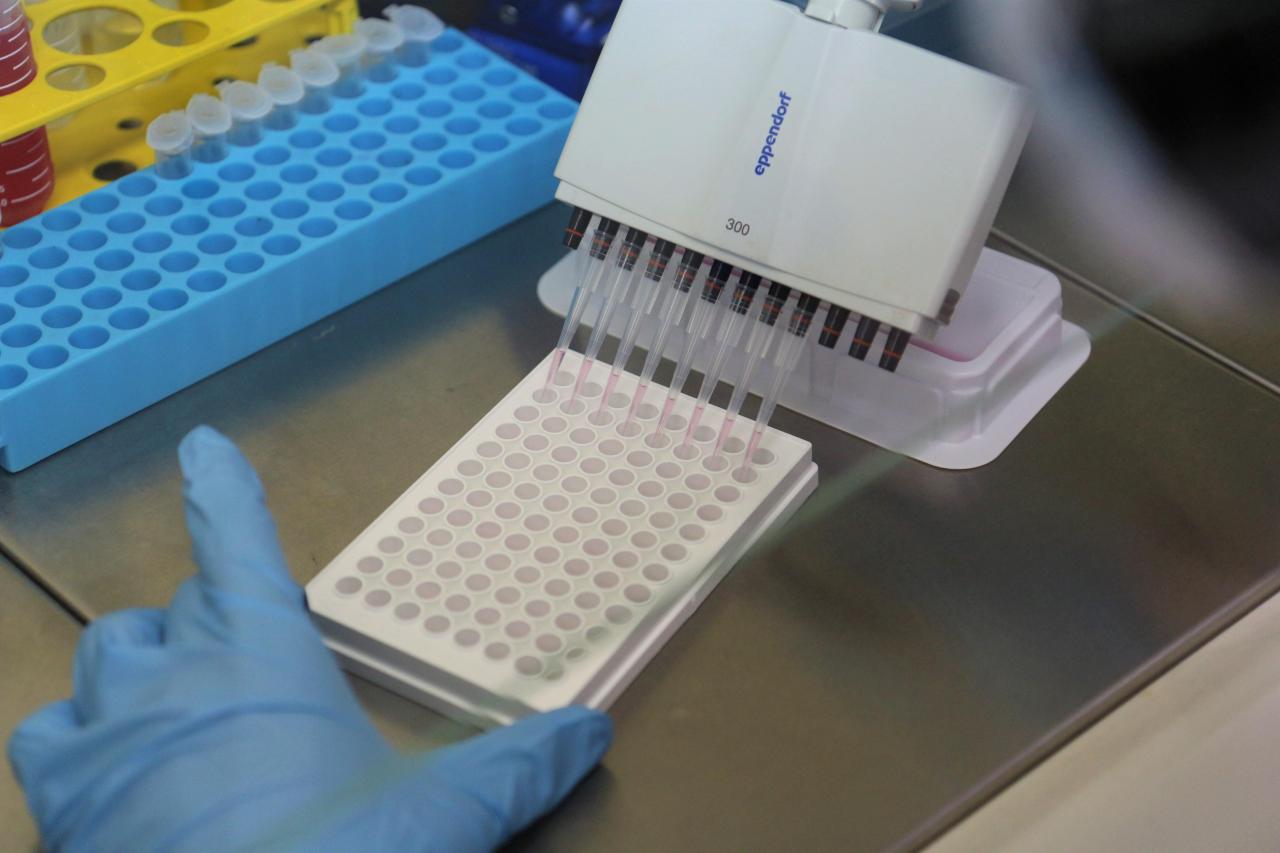Female scientists step up for leading roles in medical science: report
By Shim Woo-hyunPublished : Sept. 22, 2021 - 15:47

Four out of 10 medical research projects in South Korea are now led by female scientists, but in other fields of science, women are still significantly outnumbered by men, a local report revealed Wednesday.
According to the Korean Federation of Women’s Science and Technology Association, a total of 5,028 medical research projects were led by women in the 2010-2019 period, taking up roughly 40 percent of the total.
The study covered research projects in four categories of natural science, life science, medical science, engineering and information and communications technology that received the grants of the National Research Foundation of Korea.
Female leadership was concentrated in medical science. Of all 11,062 projects led by women, 45.5 percent relate to medicine.
The KOFWST attributed this to an increase in the number of women entering medical science in recent years.
The number of female scientists with doctoral degrees in medical science as of 2019 reached 6,236, up from 3,078 in 2010. The proportion of scientists in the field who were women also climbed to 39.4 percent from 30.7 percent in 2010.
However, the number of female scientists in leading roles was significantly lower in four other fields of science. The combined number of research projects led by women in the fields came to 6,034, compared to 31,099 research projects led by male scientists.
The number of studies led by female scientists in the field of life science was 2,622, which was higher than other three fields.
Only 742 engineering projects conducted during the 2010-2019 period have female leaders.
The report said engineering remained a largely male domain, with women accounting for just 9.7 percent of the total researchers of 2019, although this was slightly up from 6.2 percent in 2010. The number of female Ph.D. holders in engineering in 2019 reached 4,738, up from 2,108 in 2010.
Meanwhile, male scientists were more evenly involved in research projects in different fields, according to the report.
According to the Korean Federation of Women’s Science and Technology Association, a total of 5,028 medical research projects were led by women in the 2010-2019 period, taking up roughly 40 percent of the total.
The study covered research projects in four categories of natural science, life science, medical science, engineering and information and communications technology that received the grants of the National Research Foundation of Korea.
Female leadership was concentrated in medical science. Of all 11,062 projects led by women, 45.5 percent relate to medicine.
The KOFWST attributed this to an increase in the number of women entering medical science in recent years.
The number of female scientists with doctoral degrees in medical science as of 2019 reached 6,236, up from 3,078 in 2010. The proportion of scientists in the field who were women also climbed to 39.4 percent from 30.7 percent in 2010.
However, the number of female scientists in leading roles was significantly lower in four other fields of science. The combined number of research projects led by women in the fields came to 6,034, compared to 31,099 research projects led by male scientists.
The number of studies led by female scientists in the field of life science was 2,622, which was higher than other three fields.
Only 742 engineering projects conducted during the 2010-2019 period have female leaders.
The report said engineering remained a largely male domain, with women accounting for just 9.7 percent of the total researchers of 2019, although this was slightly up from 6.2 percent in 2010. The number of female Ph.D. holders in engineering in 2019 reached 4,738, up from 2,108 in 2010.
Meanwhile, male scientists were more evenly involved in research projects in different fields, according to the report.








![[Graphic News] More Koreans say they plan long-distance trips this year](http://res.heraldm.com/phpwas/restmb_idxmake.php?idx=644&simg=/content/image/2024/04/17/20240417050828_0.gif&u=)
![[KH Explains] Hyundai's full hybrid edge to pay off amid slow transition to pure EVs](http://res.heraldm.com/phpwas/restmb_idxmake.php?idx=644&simg=/content/image/2024/04/18/20240418050645_0.jpg&u=20240419100350)






![[From the Scene] Monks, Buddhists hail return of remains of Buddhas](http://res.heraldm.com/phpwas/restmb_idxmake.php?idx=652&simg=/content/image/2024/04/19/20240419050617_0.jpg&u=20240419175937)

![[KH Explains] Hyundai's full hybrid edge to pay off amid slow transition to pure EVs](http://res.heraldm.com/phpwas/restmb_idxmake.php?idx=652&simg=/content/image/2024/04/18/20240418050645_0.jpg&u=20240419100350)

![[Today’s K-pop] Illit drops debut single remix](http://res.heraldm.com/phpwas/restmb_idxmake.php?idx=642&simg=/content/image/2024/04/19/20240419050612_0.jpg&u=)